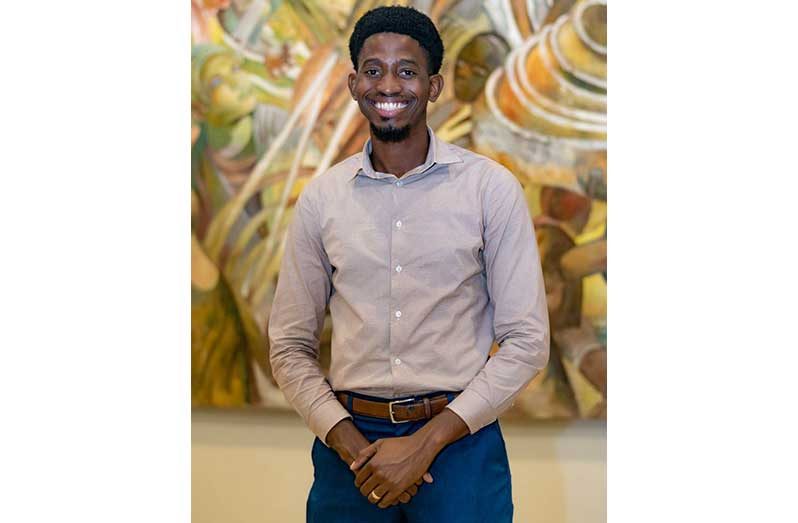How the Holy Week could serve as a bridge between generations
With the rise of new traditions and customs, for some, Holy Week is seen as just another extended holiday—a four-day weekend to fete, wash down by the creek, or squeeze in a four-day hustle. But for Adrian Ageday, a young religious leader and growing social media presence, the season is so much more. Rooted in scripture, rich in symbolism, and loaded with life-altering meaning, Holy Week is, as he puts it, “a perfect time to remind yourself why we believe what we believe as Christians.”
Adrian has become known for his straightforward, scripture-based videos under the tag Be Encouraged. A 30-year-old religious figure in his church, the Bethel Wesleyan Church, he has been using social media to connect with Millennials and Gen Zs since 2021. “I wanted to reach a particular audience, which would have been like Millennials, Gen Zs. Young people gravitate because they see this is a young person, not a big old pastor trying to condemn us,” he told Pepperpot Magazine.
The messages he shares are not watered down or sugar-coated—they are grounded in the Bible and tied to social issues and the everyday challenges of young people. As Adrian explained, the aim is to show people that there is a scripture for every challenge they may be facing. “It’s my page, so I will stick to the scriptures,” he said. Whether it’s commentary on trending issues or weekly encouragement, Adrian ensures that his content is easy to understand and relate to. “I could put out clearly understood biblical messages that somebody could read, watch and receive and come to know the Lord,” he said.
And in a society where Easter is increasingly linked with parties, drinks, and long weekends, he hopes to cut through the noise with a steady call for reflection. “Party, party, fete, jouvert—everywhere you turn Easter Sunday: wash down, lime by the creek,” he observed. “There is this loss of reverence, in my opinion,” he stated. Adrian believes the shift stems from a lack of proper teaching. “If you aren’t taught, more than likely you won’t know,” he said, pointing out that many see Good Friday and Easter Sunday as just normal days, a normal holiday weekend. “For some people, Friday, Saturday, Sunday,
Monday is a perfect weekend to make money,” he added. Still, he urges his fellow Guyanese to pause and reflect. “Good Friday, Easter Sunday—try your best to reflect. This day was a consequence of a man’s sacrifice,” Adrian shared.
The narrative of Holy Week is central to his teachings, and he believes that many of the stories told and learnt in the Bible are still impactful today. Recounting a few interesting facts about the Holy Week, Adrian shared, “Everything in the Holy Week is rooted in scripture.” He added, “Thursday, during the day, is when Judas switched out and betrayed Christ. Jesus shares his last meal with his disciples and he initiates the communion that we normally take. And then the day following was his death and resurrection.”
The most well-known part of the story—the crucifixion—is the reason we fly kites at all and, as Adrian says, is the reason that Christians believe in Christ. “They selected a criminal over the Lord and then he was taken into trial,” he said. “They asked him, ‘Who do you say you are?’ He says, ‘I am the I Am.’” That moment, for Adrian, underscores the power and divinity of Jesus. And what came next—his death—is nothing short of crucial to the faith. “The crucifixion is paramount, is critical, is the fundamental basis of the Christian faith. If that rising-from-the-dead part did not happen, then what are we believing in?” Adrian shared.
Still, despite the serious message, much of Adrian’s online content is filled with compassion—and this compassion has earned him the support of many young men. As he shared, “A lot of people have messaged—young men in particular—and said, ‘Hey, look, I need help. I need prayer.’ It’s good to know
that I’m there to steer them in the right direction,” he stated. Whether online or in person, Adrian is always ready to connect with people. “I’m always inviting people to our local assembly,” he said, noting, “There are so many people that follow but might not say anything until they see you in the room and say, ‘Hey, I know you from somewhere else.’”
Adrian sees the evolving culture, the rise of digital tools, and the very different expressions of faith across age groups not as a threat but as an opportunity. “I’m a millennial. Before me, was a [Baby]boomer, and then we got the Gen Zs coming up. I’m in the middle,” he noted. Speaking of the generational divide, he often finds himself navigating, he added, “You tell a Gen Z, ‘Okay, we’re going to do a service just catering for you guys.’ They come dressed all kinds of ways. So the [Baby]boomer sees that and says, ‘Man, this isn’t appropriate for church,’” he explained.
For Adrian, bridging that gap isn’t about choosing a side—it’s about mutual respect and creating a space where faith can be felt, not just taught. “It has to come to a place where both parties are understood, respected, and given a listening ear, too,” he said. “So you could say, ‘Okay, here’s what happened. You can come, but if it’s your first time, you can dress like that. But for the services after, that’s a dress problem. Well, just dress how we believe you should dress in church,’” he shared.
The same goes for worship style and Bible formats. Whether it’s hymns or contemporary songs, printed Bibles or Bible apps—what matters to Adrian is that the message isn’t lost in translation. Holy Week, for him and for many Guyanese, is more than ritual or tradition—it’s an open invitation to pause, reflect, and connect with something deeper.



.jpg)








